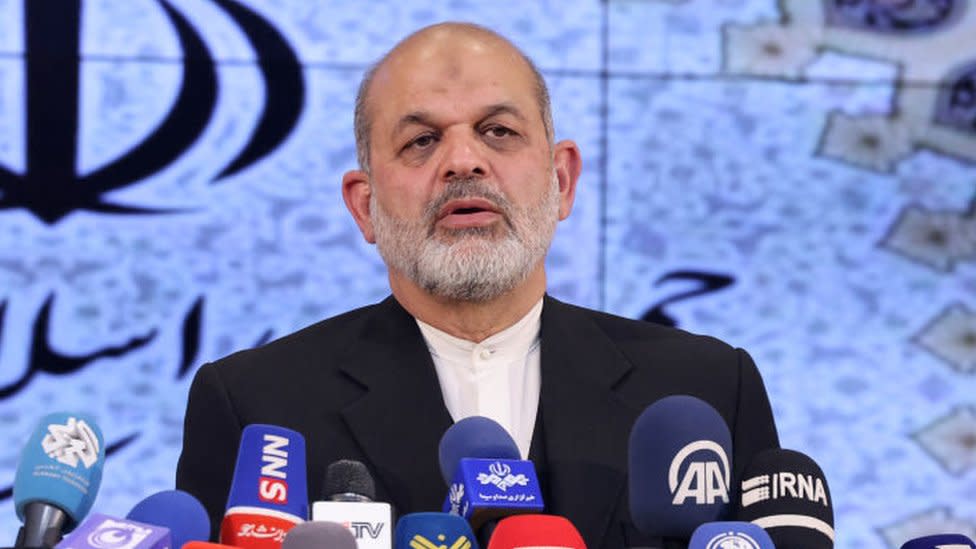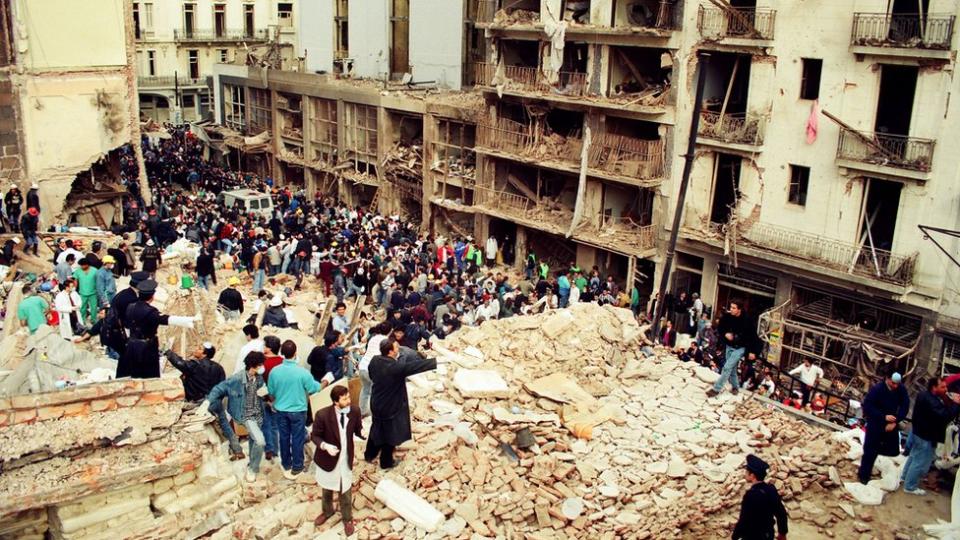Argentina seeks arrest of Iranian minister over 1994 bombing

Argentina has asked Interpol to issue an arrest notice for the Iranian interior minister, Ahmad Vahidi.
The request comes less than two weeks after a court in Argentina held Iran responsible for the 1994 attack on a Jewish community centre in Buenos Aires, in which 85 people were killed.
Mr Vahidi was in Pakistan earlier this week as part of an Iranian delegation which is now in Sri Lanka.
Argentina said it had also asked the two countries to detain Mr Vahidi.
The Argentine Foreign Ministry said in a statement that Interpol had issued a so-called "red notice".
While a red notice alerts police in member countries about internationally wanted fugitives, it does not constitute an arrest warrant.
Interpol cannot compel police to arrest someone for whom a red notice has been issued, it is up to the member country to decide whether to make the arrest.
The Iranian delegation, which includes President Ebrahim Raisi, arrived in Sri Lanka earlier on Wednesday.
However, AFP news agency reported that Mr Vahidi was not seen accompanying the president upon arrival in Sri Lanka.
Iran's official news agency reported that Mr Vahidi was back in Iran on Tuesday, without referring to the red notice.
The Argentine Foreign Ministry said it wanted Mr Vahidi as "one of those responsible for the attack on [the Israeli-Argentine Mutual Association cultural centre] Amia".
Argentina has in the past accused Mr Vahidi, who led the overseas operations arm of the Islamic Revolutionary Guard Corps (ICRGC) at the time of the attack, of being one of the masterminds behind the bombing.
The attack on the cultural centre was the deadliest in Argentina's history. Three hundred people were injured in the explosion, which killed 85.

Iran has always denied any involvement but on 11 April, Argentina's Court of Cassation - the country's highest criminal court - ruled that Iran had planned the attack and that the Iran-backed group Hezbollah had carried it out.
The court called it a "crime against humanity".
The Iranian Foreign Ministry dismissed the ruling, saying the court had made "baseless and unsubstantiated claims" for the sake of "political goals and objectives".
Argentina is home to Latin America's largest Jewish community.
The community was the target not only of the Amia bombing but also of a previous bomb attack, in which a suicide bomber drove a lorry loaded with explosives in to the Israeli embassy, killing 29 people.
Argentina has long blamed Iran and the Islamist group Hezbollah for that attack as well as the one on Amia.

